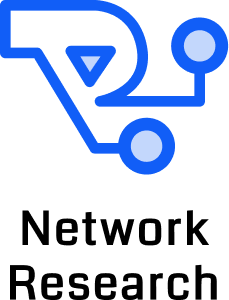The Network Research team was excited to participate in DeSci Berlin, an amazing and energizing “unconference” that brought together researchers, technologists, and enthusiasts of science and Web3 to discuss current problems and opportunities in the practice of science and workshop on how blockchain and decentralized technology can solve them.
Discourse Graphs
Science is all about synthesizing ideas, formalizing hypotheses, designing experiments, discussing the results with other researchers, and sharing knowledge with the world. Do we hear we need a decentralized communication tool to create and share knowledge with our peers? A new republic of letters, or a classical salon of technology and the arts that creates the space to peer-review our ideas earlier and more often? Enter our workshop at DeSci Berlin: “Tools for communication and synthesis in decentralized science”.
Karola Kirsanow and Sílvia Bessa were pleased to have the opportunity to present Discourse Graphs to the DeSci audience. Discourse graphs are the creation of Joel Chan, a professor at UMD who studies creative knowledge work and one of our current grantees, and they are all about giving structure to the living conversation familiar to all researchers. Questions, claims, evidence and sources — the building blocks of scientific discourse, are the nodes of the graph, and their relationships — the edges of our discourse graph — support, oppose or inform the various nodes.
The Discourse Graph is a datamodel that emphasizes discourse moves, a protocol for knowledge discovery and transfer that is interactive, dynamic, and fun to play with. You can use Discourse Graphs to synthesize information, review extensive literature, or roadmap new research initiatives in an emergent field.

Discourse graphs build conversational ‘moves’ into a network of relationships
Building a Discourse Graph is like playing with Lego! There are no limits to creativity and fun, whether you are solving those recess questions about “who’s the strongest superhero?” or finding new questions or hypotheses to test. It simplifies the process of remixing and redomaining scientific primitives — especially across disciplinary boundaries.
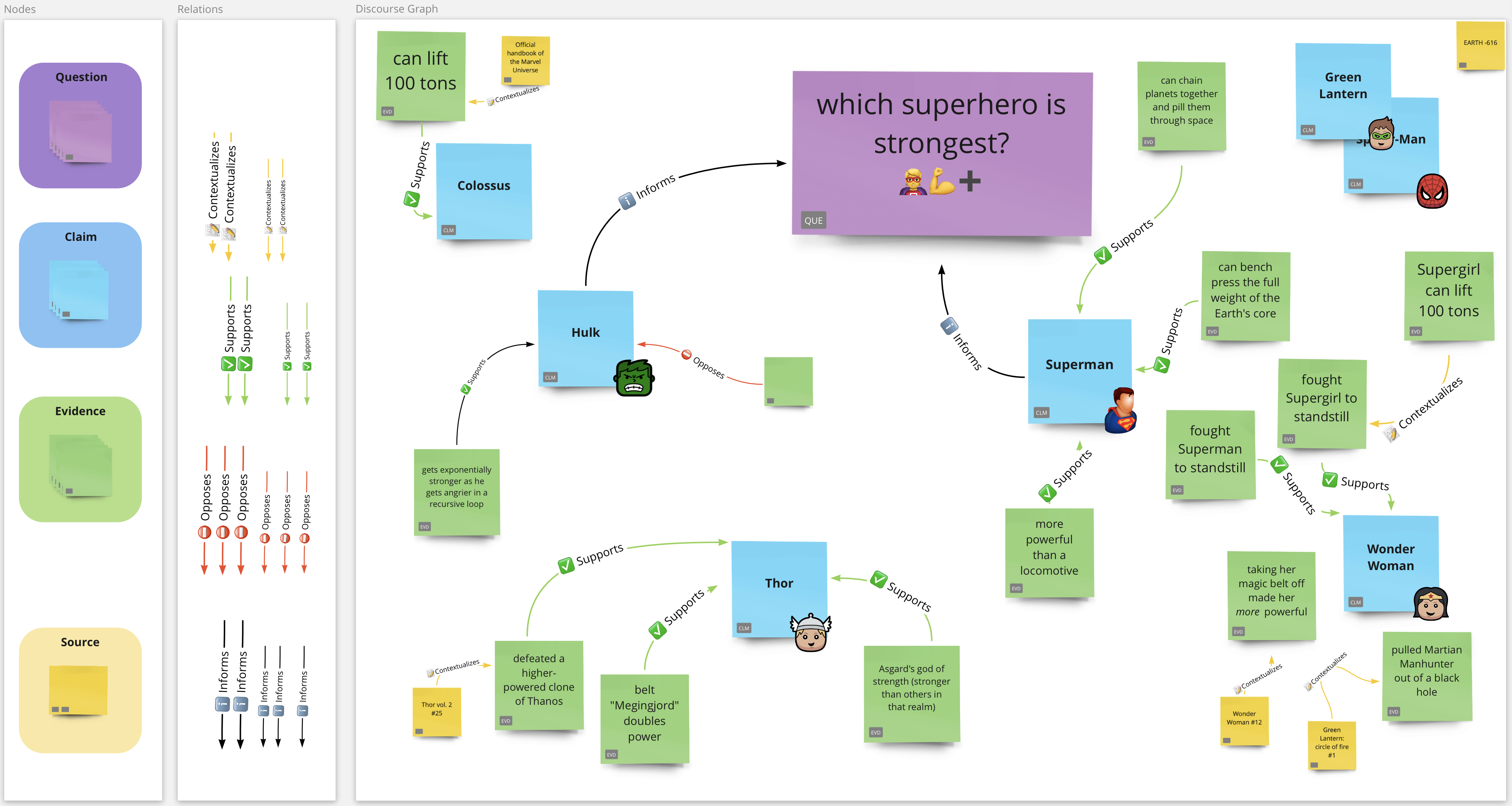
The Discourse graph protocol can be implemented in almost any client, from networked notebooks like Roam Research or logseq to Miro boards (above) to corkboards
The Discourse Graphs train has left the station and is picking up cool people on its way! Matt Akamatsu, a University of Washington cell biologist and one of our most recent grantees, is extending Discourse Graphs for the needs of real-time experimental science. Next station: Results Graphs!

Results graphs move the focus of activity from the literature review to the bench. The two graphs forms are interoperable: two great tastes that taste great together!
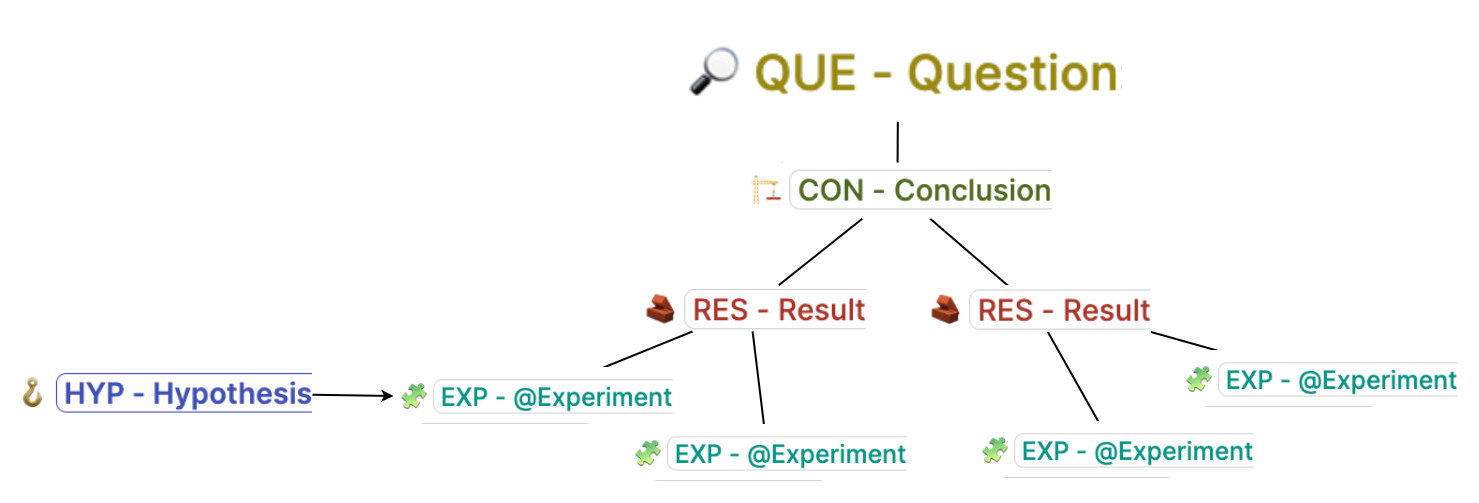
Results Graphs can be used to discover and motivate the need for new experiments
Want to know more? Dive into the available Roam JS extension to start using Discourse Graphs now, check the Tinderbox implementation and Logseq port project, or follow the development of Results Graphs on the project wiki!
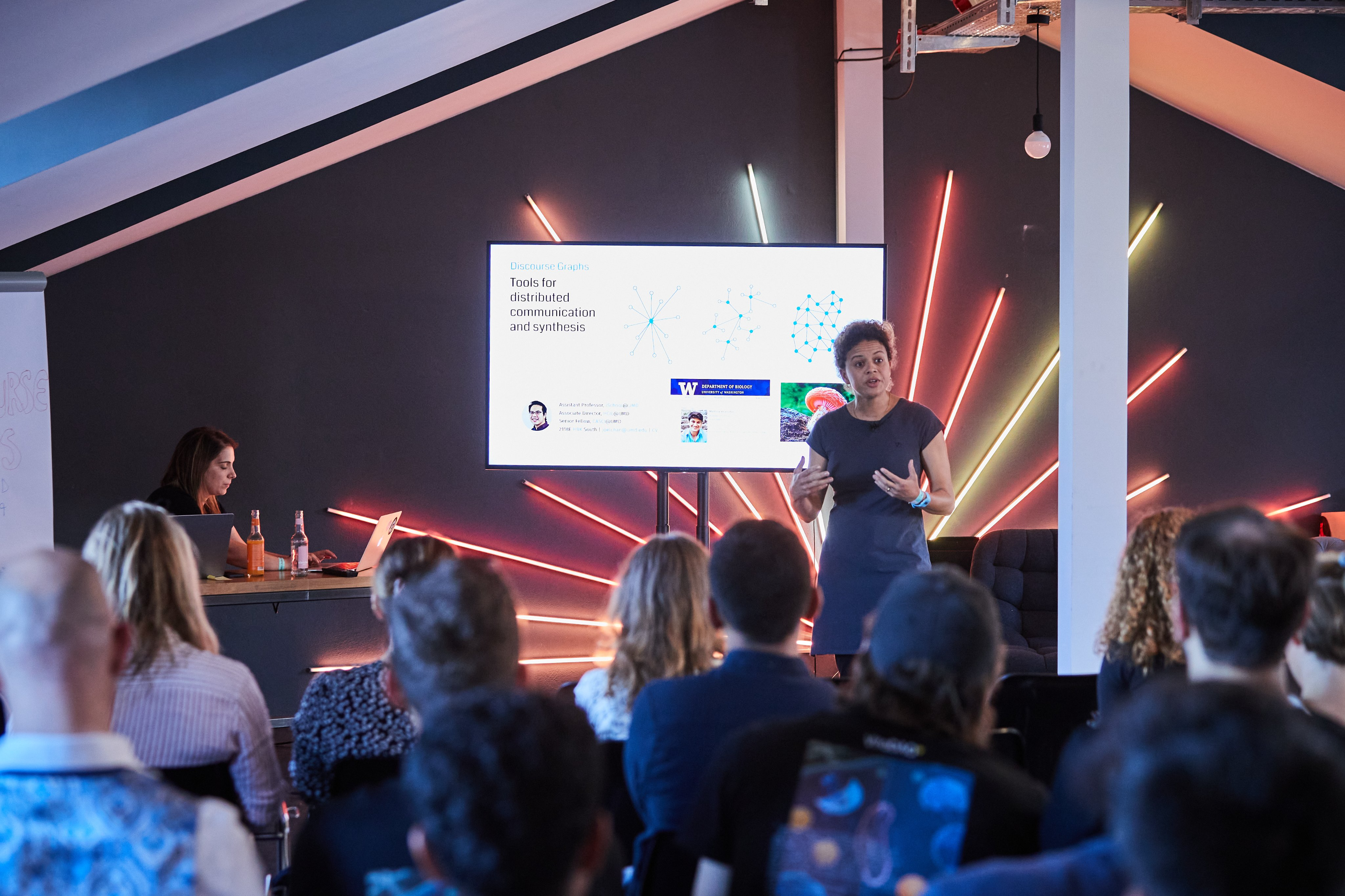
Discourse and Results Graphs at DeSci Berlin
Bacalhau
And that’s not all, we were not alone at DeSci Berlin! Our Bacalhau friends were also there, showcasing how Protocol Labs is committed to building the infrastructure to democratize access to science. Bacalhau (the Portuguese word for the cod fish, itself an abbreviation for Compute Over Data) is bringing data storage and computation power closer together on-chain, a network of open compute resources to serve a data processing workload and reinvent science through reproducible data pipelines. Check out the videos of the latest Compute over Data summit to learn more details about the project!
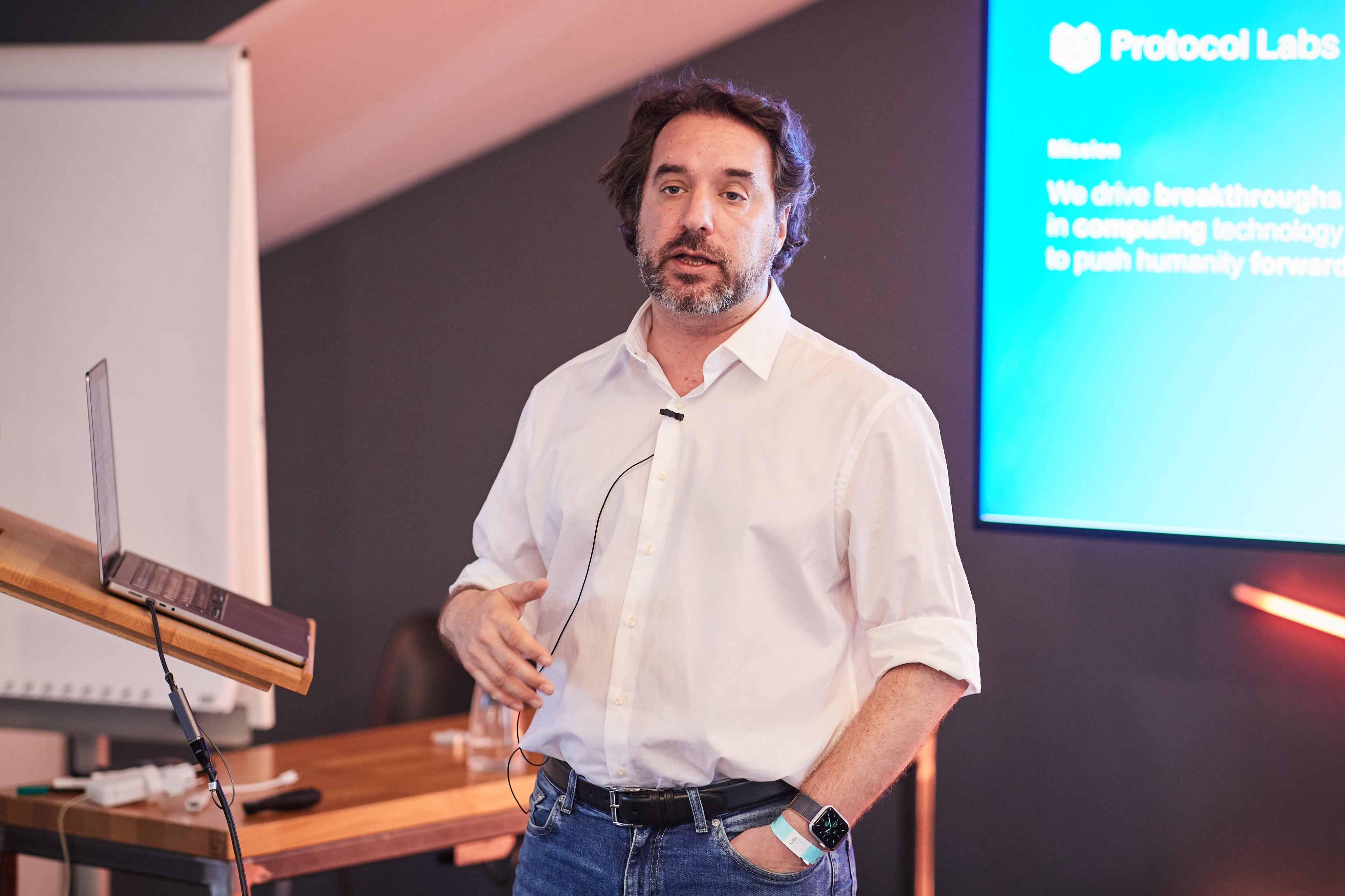
David Aronchik presents a deep dive intio cod-rich waters at DeSci Berlin
That’s it, Protocol Labs mixes research projects with infrastructure development and deployment to give researchers and developers distributed tools to unlock new collaborative ecosystems… and accelerate decentralized science!
